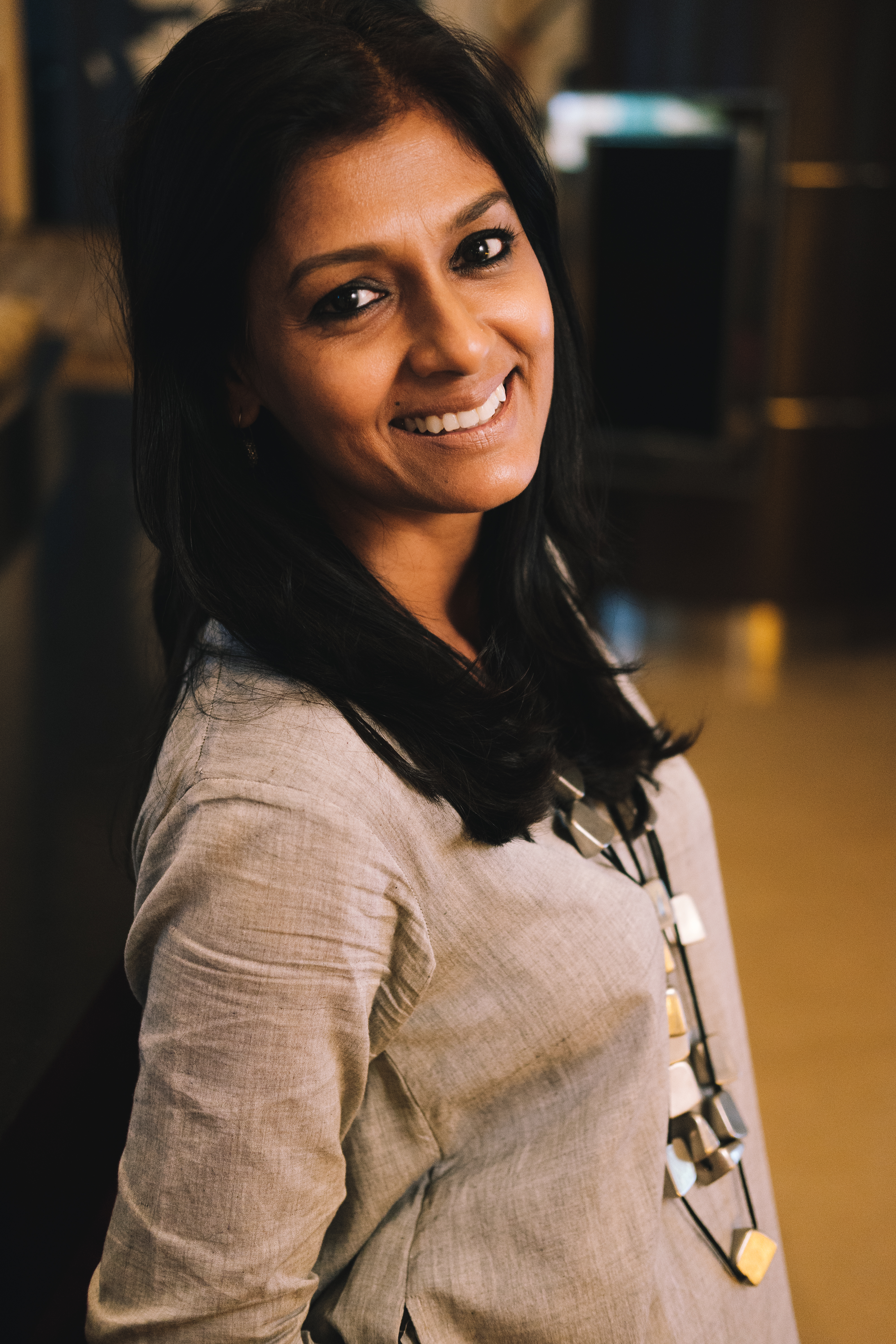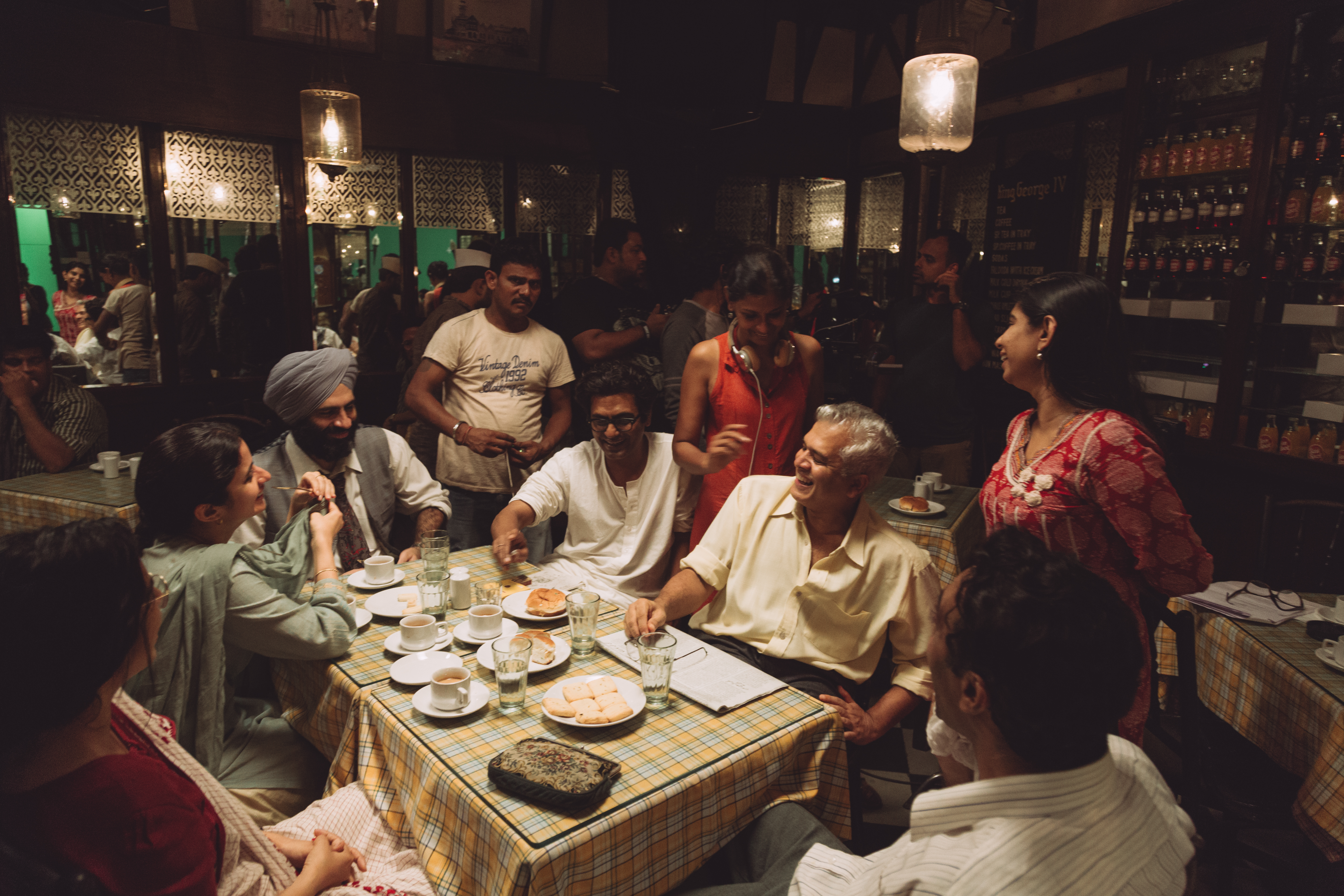With the second Singapore South Asian International Film Festival (SgSAIFF) set to kick off this Friday, movie buffs in the island nation are in for a treat. Speaking to Indians in Singapore, one gets a clear sense that Nandita Das and her Manto are the biggest draws to festival's 2018 edition. There is excitement among the community to watch the movie and, hopefully, get a chance to interact with Nandita Das.
Nandita Das' directorial venture Manto, featuring Nawazuddin Siddiqui in the titular role as Sadat Hassan Manto, will be the opening film of the festival, to be held from October 5 to 14 in Singapore.
The SGSAIFF 2018 lineup represents a diverse mix of feature films, short films and documentaries, which include movies from India, Bangladesh, Sri Lanka, Pakistan, Nepal and Afghanistan. This year, they are focussing on cinema from the sub-continent.
Connected to India (CtoI) caught up with Nandita Das and chatted with her about the upcoming festival, her thoughts about her movie as the opening showcase and other topics surrounding the film industry. Excerpts from the interview follow:
C to I: What were the reasons for choosing Saadat Hasan Manto as the subject of your biopic? How did you research, conceptualise and plan the plot?
Nandita Das: What drew me to the story of Manto was his free spirit and his courage to speak out against orthodoxy of all kinds. I was struck by his simple yet profound narratives and the way he insightfully captured the people, politics and times he lived in. He wrote as he saw, as he felt, without dilution, and with a rare sensitivity and empathy for his characters. He was irreverent and had an irrepressible desire to poke a finger in the eye of the establishment, often with sharp humour.
For years I thought of making a film based on Manto’s short stories, even before I made my directorial debut, Firaaq. But it was only in 2012, during his centenary celebrations when I delved deeper into his essays, sketches and other translated works as well as the writings of others on him, that I was able to expand the idea beyond his short stories. The idea of interweaving his short stories was an idea I had right from the start, for without them, I felt I would not be able to do justice to the man and the writer.
I spent four years reading and researching Manto’s own writings as well as those that wrote on him. I was also fortunate enough to have had the opportunity to speak at length with his daughters and his grand-niece, the eminent historian Ayesha Jalal. Ayesha’s book, Pity of Partition – Manto’s Life, Times, and Work across the India-Pakistan Divide, and the one she wrote on Manto’s centenary along with Manto’s youngest daughter, Nusrat Jalal, were some of the first gifts I got from the family. Manto died young, at 42, so very few are living who had actually met him. There were, however, two people who did: one is his sister-in-law, who also features in the film, Zakia Jalal, and the other was Mr. Intizar Hussain, a well-known Pakistani writer, who passed away recently. I spent time with them and of course, the daughters and, through the process of this film, got close to them. Manto, the husband, the father, the friend – these relationships I could only understand through the important nuggets these individuals shared with me, which no book would have been able to give me.
It took me five years to feel equipped, both emotionally and creatively, to tell this story that so needed to be told.
C to I: Manto wrote about sex workers and women in a way that uncommon at the time, what are your thoughts on his view of women and how he portrayed them?
Nandita Das: Manto’s view of women was rare in the literature of that time. It is one of the most important aspects of his work, and that interested me greatly. The women in his stories were complex and richly developed, but he reserved his most nuanced and sympathetic gaze for sex workers, who were very much on the margins of society. He turned them from objects of scorn into people that have agency; they were often the protagonists of his stories. Whilst Manto may himself have rejected being labelled a ‘feminist’, he was a feminist in more ways than one. In his life too, he was surrounded by women he loved and cared for – his mother, sister, wife and three daughters. He ironed his wife’s sari, made pickle, cleaned the house, read stories to his wife and sister and was an engaged father. A rarity for South Asian men, even today!
C to I: Manto was known as a man who wove social commentary into his writing. How is that highlighted in the film and what message do you want to spread through the production?
Nandita Das: Manto works hold up a mirror to society’s fears, contradictions and prejudices. He wrote with unflinching honesty about what he saw in the world around him. I chose to interweave his stories along with the narrative of his life so as to fully reflect the man, the writer and the times in which he lived.
For me, making this film has been a way to share my concerns and respond to the growing violence, fear and prejudice around me. My intent was to invoke the ‘Mantoiyat’ I believe we all have in us, however dormant or awakened it may be. It is the desire to be truthful, courageous and outspoken. I think people will see themselves more honestly. It will make them uncomfortable in a way that hopefully they would want to do something about. After all, we all want to be more truthful, courageous, empathetic and free-spirited. And Manto inspires us to be that.
C to I: A ‘man before his time’, how do you feel Manto and his works would be received if he was presenting them in contemporary times? Could you give us an example of the impact of his writings on India and/or Pakistan’s societies?
Nandita Das: Manto was relevant in his time, is relevant today, and will continue to be for a long time to come. Not much has changed. We are still grappling with issues of freedom of expression and struggles of identity. Almost 70 years later, our identities lie inextricably linked to caste, class, race and religion, as opposed to seeing the universality of human experience.
But the role of art is to build bridges and not walls. When there is political tension, culture can become the means to bring people closer, lessen prejudice and trigger conversations. Whenever I have been to Pakistan, I find people in admiration of our democracy, diversity, art, culture and in particular, cinema. Art, in fact, transcends boundaries. It is a pity that we in South Asia cannot travel and collaborate freely. If we want to be peaceful, we need to have peaceful co-existence with our neighbours. Of course, we need to fight terrorism and governments that encourage it instead of stopping it, but we also need to have the wisdom to separate the people from those governments. People are suffering in both places. Art can, in fact, become the balm to our common wounds. I hope the film will become a bridge at a time when political forces are creating walls.
A lot of Manto’s work continues to resonate now because it deals with people and issues that remain marginalised or taboo. Men like him don’t fit in any time and that is why they help is to push the boundaries. They become the social conscience of the society, showing us the mirror to even our ugly side. But precisely for this reason, they are also needed to make the society more mature and sensitive to others. I think he would have had many things to say about today and would probably have been behind bars by now!
I think Manto’s story will resonate with younger audiences as it remains very relevant to the times and struggles that they too face. I think they will connect to the story because in the end, it is a human story of struggle and courage and the will to speak out and be your own self – something we all struggled with in our youth (and beyond for that matter!)
C to I: Singapore has a large Bollywood fanbase, including people from the Chinese and Malay communities. How would you introduce Manto to them?
Nandita Das: I have made the film keeping in mind that most people may not know anything about Manto, as long as they come with open minds and empathy, they will relate to Manto and his journey. The struggles of censorship, dislocation and belonging that he faced are faced by many of us, all around the world. At its core, the film remains a human story that deals with a writer’s conviction and courage, and angst and loneliness, and desire for freedom. In the end, despite differences in language, culture, region, religion etc., the reason why it is resonating with audiences across the spectrum is that it in many ways, the story addresses the issues we are grappling with today.
C to I: Nawazuddin Siddiqi is one of the most sought-after actors in India at the moment, but what prompted you to specifically choose him to play Manto?
Nandita Das: I always had Nawaz in mind while writing Manto. Firaaq, my directorial debut was Nawaz’s first significant role in a feature film. They say if you get the casting right, 70% of your job is done, and with Nawazuddin that’s exactly what happened. He looks and feels the part. He has incredible range as an actor, but intrinsically Manto lies somewhere in his eyes. – it was an obvious choice for me. I brought in my research and script and Nawaz brought with him his life experiences and his talent. Together, I think we managed to bring many subtleties and nuances to the character of Manto. Nawaz has many traits that are similar to Manto – a deep sensitivity and intensity, anger, and a dry, deadpan sense of humour. These innate qualities in Nawaz helped him transition into Manto on screen quite effortlessly. I feel that our actor-director relationship struck a perfect chord.
C to I: How does it feel to be at SgSAIFF? What are your expectations for the screening of Manto in Singapore?
Nandita Das: I was invited to SgSAIFF last year as the lead actress in Albert Pinto ko Gussa Kyon Ata Hai but was unable to attend. So I look forward to attending it this year and sharing Manto with Singaporean audiences. While the response has been very overwhelming in festivals like Cannes, Sydney and Toronto, and then critics and audiences alike after the Indian release, I continue to be curious as to how different people respond to the film so I am looking forward to the fifth night.







